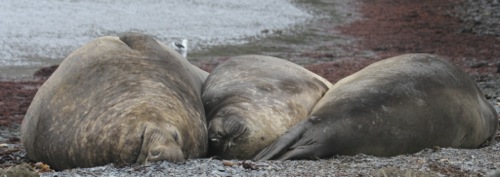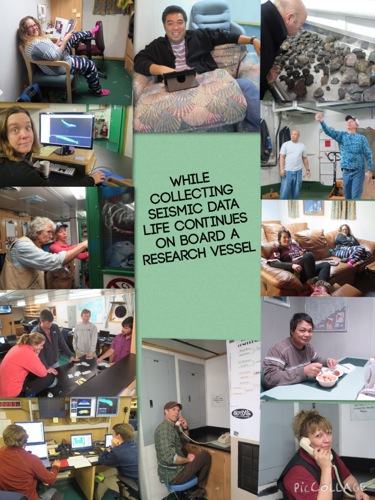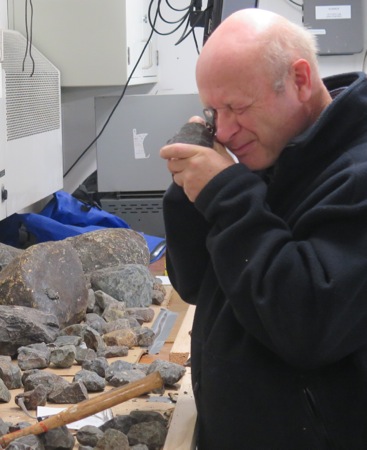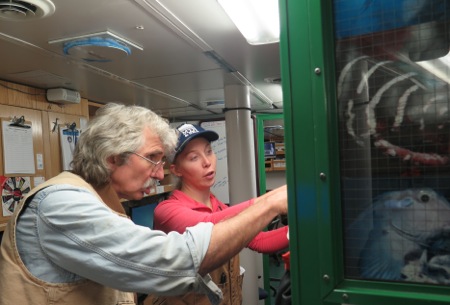Have you ever had a lazy day, you know when you read a book, drink some hot chocolate and just relax? In spirit, today was that day.
A calm day at sea. Fog moved in and the seismic continued to collect data. Much of my day was spent working on my power point for next Wednesday's web event. If you haven't signed up yet, head on over to www.polartrec.com and reserve your space.

Even the seas were calm, life on board continued, and everyone accomplished a myriad of daily chores. Since the ship runs 24/7, everyone is on a different schedule. While some people sleep, others work, but everyone eats and everyone has some time to relax.

One person who has been diligent all day has been Phil. As I sat at my computer the ping, ping, ping of Phil's rock hammer punctuated the background. Each rock has to be checked, observed, even in some cases cracked open. Phil is looking for his volcanic rocks, not the nefarious drop stones. And then ping, ping ping, Phil picks up another sample.

Across the hall from Phil is the IT shop. The IT department switches shifts every twelve hours, noon to midnight, then midnight to noon. Poor Valerie and the ET Sheldon have been trying to problem solve the internet. As we move further south, our satellite reception has been sketchy. I applaud their diligence and hope this blog makes it out. Actually I know you will be able to read my missive as the crew on the Palmer are top notch.

I then spent time on the bridge, watching the fog and talking with Eric the Third mate. I might have mentioned the calm nature of today and really not having a clue what to write about for the blog. So Eric shared a joke:
While standing on the bridge one day the captain and chief engineer were arguing about whose job was more important. The captain felt that his position was truly harder, fraught with more risks and responsibility than just a chief engineer. The chief engineer scoffed, whipped his greasy hands on his pants and laughed. "Harder, you could never do my job, you would never dirty your hands." At this the captain continued, "I navigate the vessel, keep us in safe waters, everyone's lives depend on me." The chief engineer again laughed and said, "I dare you, switch with me, just for one day. Let's see if you can run the engines, keep the generator in working form!"
The challenge was set, and on the very next watch both men switched positions. The captain went to the very bowels of the vessel and the chief engineer went to the bridge. Not long after the switch the engines stopped. The captain frantic, checked the fuel lines, cleaned the filters, checked the fuel pumps. He used starter fluid and nothing appeared to work. With a sigh of defeat he walked up the six flights of stairs to the bridge. With hat in hand, and a humbling voice he approached the chief engineer. "You were right, I throw in the towel, there is nothing I can do to get the engines running."
The engineer turned his head and replied "It's about time you got up here, we ran aground three hours ago!"
Thanks for the joke Eric.

Don't forget to check out tomorrow's blog. All about safety at sea.



Comments